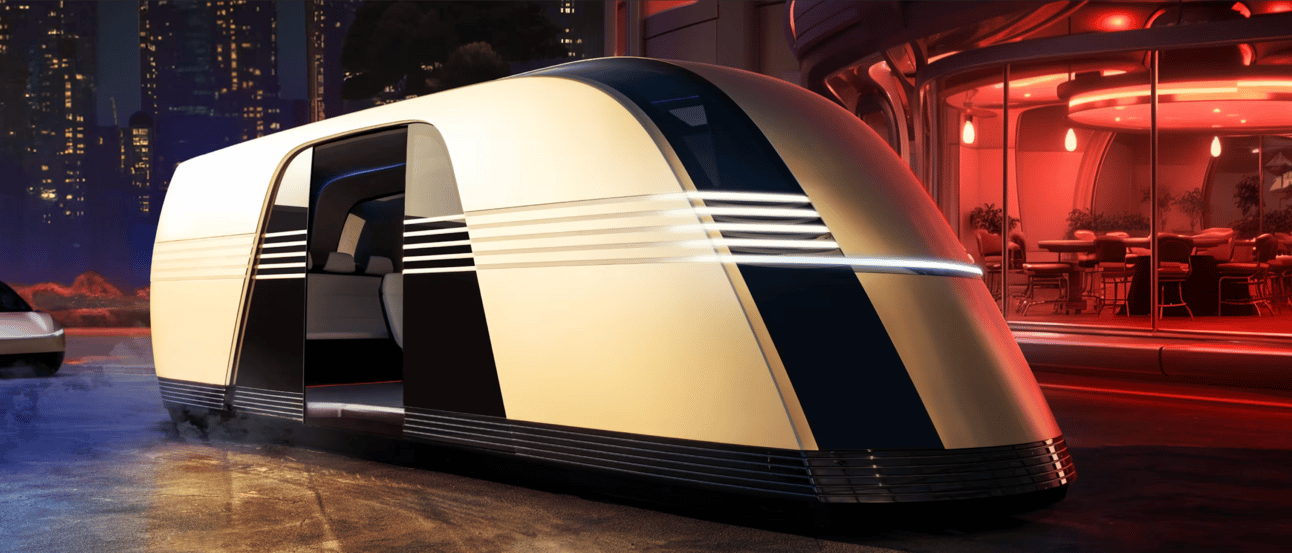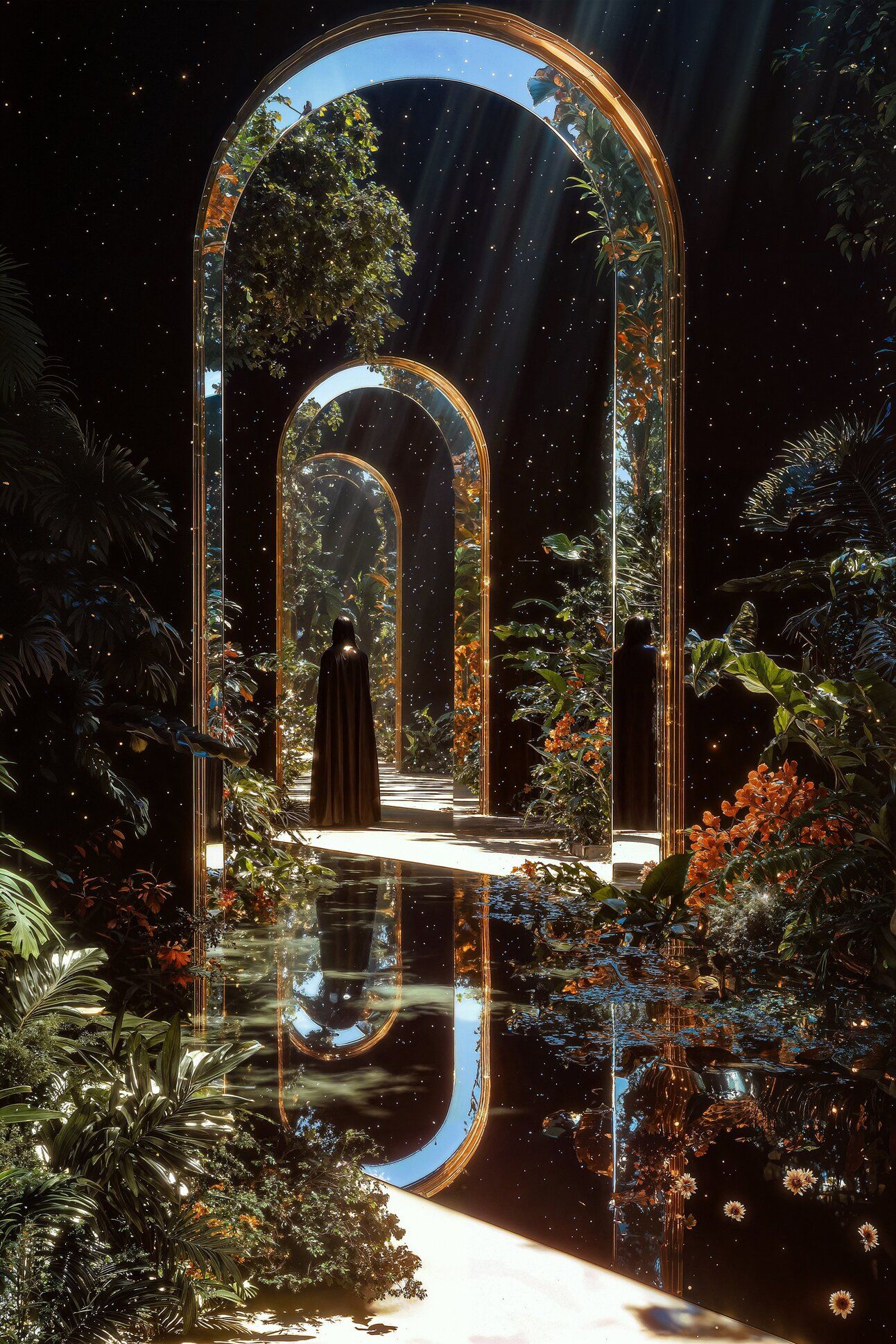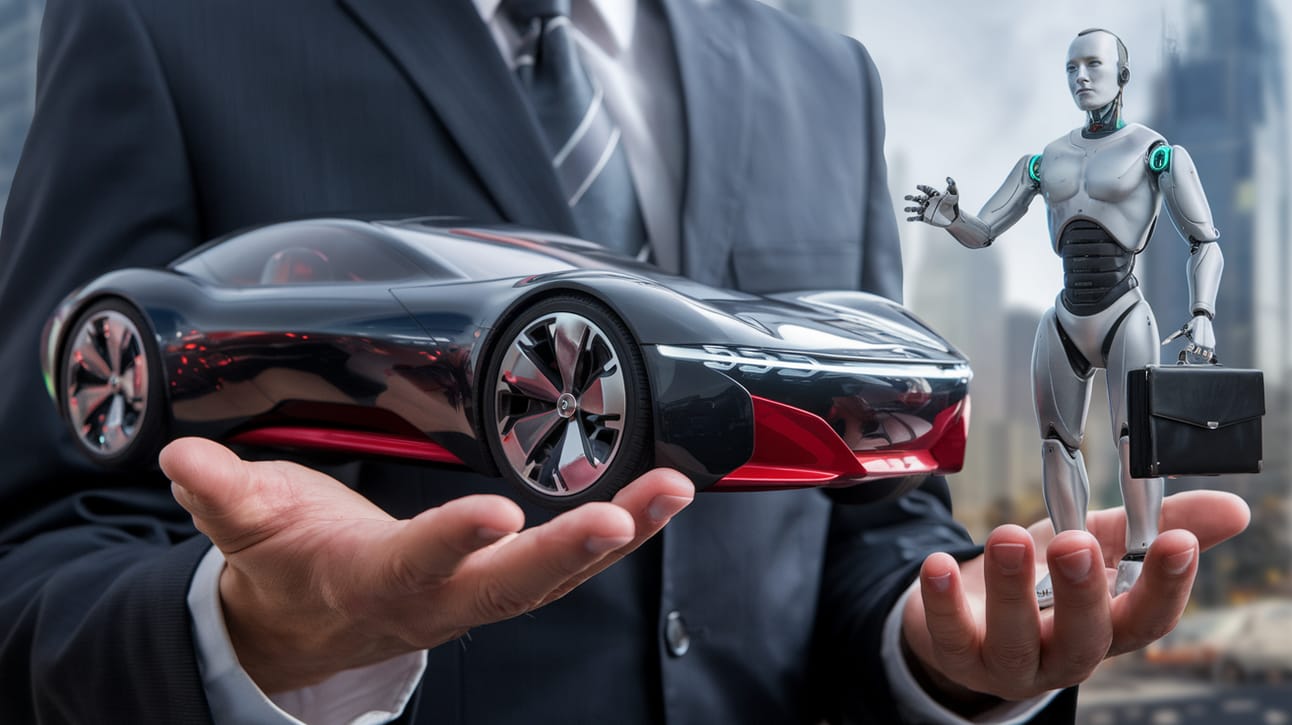Beginners in AI
Thank you for joining us again!
Welcome to this week's edition of Beginners in AI, where we explore the latest trends, tools, and news in the world of AI and the tech that surrounds it.
This week, we look into Tesla’s ambitious robotaxi project and their humanoid Optimus robot—aiming to bring robotics into your daily life in the near future. We also cover Musk’s legal tussle with OpenAI, Google facing government scrutiny, and Adobe’s new tools to fight misinformation. Plus, AI trailblazers debate the future of innovation.
Stay with us as we explore how AI is shaping tomorrow!
Read Time: 7 minutes
AI TOP STORY
TESLA’S ROBOTAXI REVOLUTION: MUSK UNVEILS CYBERCAB FOR 2026

Tesla’s Cybercab Concept
The Reveal
Elon Musk recently unveiled Tesla’s Cybercab, a futuristic autonomous taxi with no steering wheel or pedals, showcasing a bold step towards full self-driving technology. The announcement was part of Tesla’s "We, Robot" event, hinting at plans for the vehicle to become operational by 2026.
AI Vision and FSD Chips
The Cybercab’s functionality relies heavily on Tesla’s advanced Full Self-Driving (FSD) chips. These custom chips, part of Tesla’s Hardware 3.0, are designed to handle vast amounts of real-time data from the vehicle’s cameras. Tesla’s AI uses computer vision to interpret road conditions, with the FSD chips processing 2,300 frames per second—nearly 20 times faster than Tesla's previous systems. The chips also support neural network operations, enabling the car to learn and adapt to complex environments without driver intervention. Tesla’s vision-based autonomy eliminates the need for radar, betting on high-resolution cameras and AI alone to navigate safely.
Bottom Line
By combining cutting-edge AI with efficient hardware, the Cybercab aims to make robotaxis an affordable, practical reality, priced below $30,000. This could reshape transportation by reducing personal car ownership and opening new urban possibilities, such as repurposing parking lots into public spaces. The project reflects how Tesla’s advancements in AI hardware, particularly through proprietary FSD chips, are integral to delivering safe, reliable autonomous travel at scale.
LAST WEEK IN AI AND TECH
OpenAI Fires Back: Musk Lawsuit Called ‘Harassment’
OpenAI seeks the dismissal of a lawsuit filed by Elon Musk, describing it as part of a "blusterous harassment campaign." Musk’s legal action accuses OpenAI of improperly using data and drifting from its original mission of being an open-source non-profit. OpenAI, however, argues that the claims lack merit and are aimed more at publicity than substance.
Read more here.
AI Monopoly? Math Genius Tao Says ‘Not a Good Idea’
In an interview, mathematician Terence Tao expresses concern over the concentration of AI power in a few companies. He warns that monopolies in the AI space could limit transparency and stifle innovation, calling for diverse, independent research efforts to prevent over-reliance on a select few.
Read more here.
US Government Mulls Breaking Up Google
The U.S. government is reportedly considering the breakup of Google to address anti-competitive practices. This would mark one of the largest moves against a tech company in decades. The investigation centers on Google’s dominance in search and advertising, which regulators argue stifles competition and limits consumer choice.
Read more here.
Adobe Launches Free Tool to Fight Misinformation
Adobe has introduced a free web app under its Content Authenticity Initiative to help creators protect their work and build trust with audiences. This tool allows artists to add metadata to their digital content, ensuring proper attribution and safeguarding against misuse.
Read more here.
AI Trailblazers Hinton and LeCun Debate AI’s Future
Pioneers Geoffrey Hinton(also known as The Godfather of AI) and Yann LeCun, both instrumental in developing deep learning, offered differing views on AI's trajectory during a recent panel. While Hinton voiced concerns about AI safety and potential risks, LeCun remained optimistic, downplaying existential threats and emphasizing innovation. Their debate reflects the growing divide within the AI community on how to balance progress with precaution.
Read more here.
The real problem is not whether machines think, but whether men do.
TECH TERMS TO KNOW
FSD Chip (Full Self-Driving Chip): An FSD chip is a custom processor created by Tesla(ticker TSLA) that powers its autonomous vehicles. It processes real-time data from cameras and sensors, enabling advanced computer vision to interpret the environment. By analyzing thousands of frames per second, it helps Tesla's AI make driving decisions without human input. This chip architecture is optimized for neural networks, ensuring efficient performance with minimal energy consumption—essential for vehicles operating independently on the road.
TOOL SPOTLIGHT (non-sponsored)
Open BB: an AI-powered, open-source investment research platform designed to democratize access to financial data and analytical tools. It features the OpenBB Terminal, a command-line interface that integrates with nearly 100 data sources across various asset classes, including equities, options, and cryptocurrencies.
The platform incorporates AI capabilities, such as an AI Copilot for natural language queries, and allows for extensive customization by users to connect documents, RSS feeds, and numerous financial and news sources. Founded by Didier Lopes during COVID-19, OpenBB aims to disrupt the financial industry with innovative solutions and offers both free tools and premium enterprise versions to cater to individual investors, analysts, and financial institutions alike.
COURSE
Join the growing community of AI enthusiasts starting from the ground up right here
ROBOTICS AND AI

Tesla Optimus Bot
Tesla’s Optimus Robot: A Humanoid Helper for Your Home
Elon Musk has revealed plans to introduce the Optimus robot—Tesla's humanoid assistant—into homes as early as 2026. Demonstrated at Tesla’s "We, Robot" event, the Optimus bot showcased its ability to perform tasks such as mowing the lawn, babysitting, and serving drinks. Musk claims the robots will cost between $20,000 and $30,000, aiming to make them accessible companions capable of handling tedious chores and assisting in daily life. Tesla envisions these robots transforming homes and workplaces through AI-powered autonomy.
For more details, read more here.
TRY THIS PROMPT (copy and paste)
Act as a product design consultant. Brainstorm five innovative smart home devices focusing on sustainability and user convenience. For each concept, provide a brief description, core features, target market, and potential design challenges. Include suggestions on how AI could enhance each product's functionality. Then suggest next steps for prototyping, including what and hardware will be most useful, ordering them from cheapest to most expensive. DID YOU KNOW?

Sophia
Sophia, a humanoid robot developed by Hanson Robotics, made history in 2017 by becoming the world’s first robot to receive citizenship from a country—Saudi Arabia. Designed to engage in conversations and express human-like emotions, Sophia showcases the potential of AI-driven social interaction. Her citizenship sparked debates about the ethics of granting rights to machines, raising thought-provoking questions about the future relationship between humans and AI. Sophia holds the position of Innovation Ambassador for the United Nations Development Programme.
AI-GENERATED IMAGE OF THE WEEK

Artist: Miboso (Untitled)
Thank you for reading. We’re all beginners in something. With that in mind, your questions and feedback are always welcome and I read every single email!
-James
By the way, this is the link if you liked the content and want to share with a friend.



